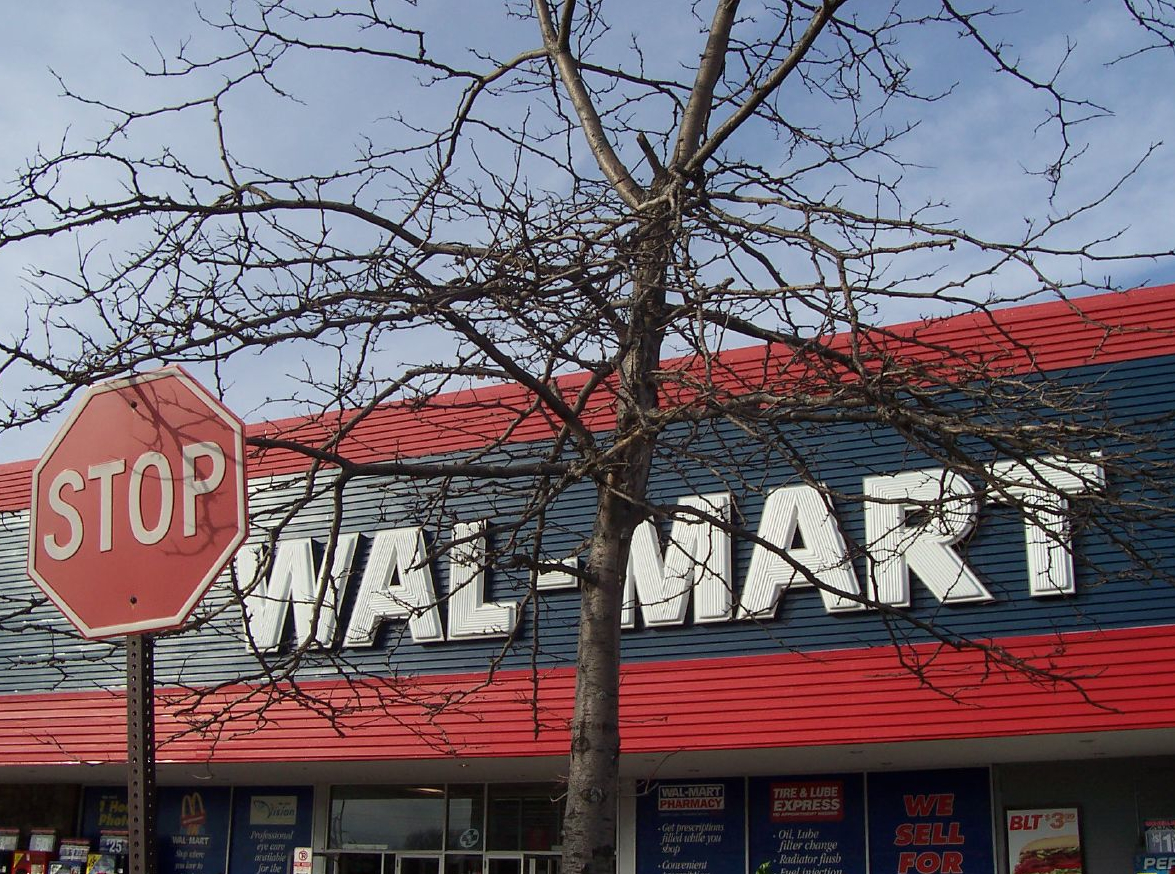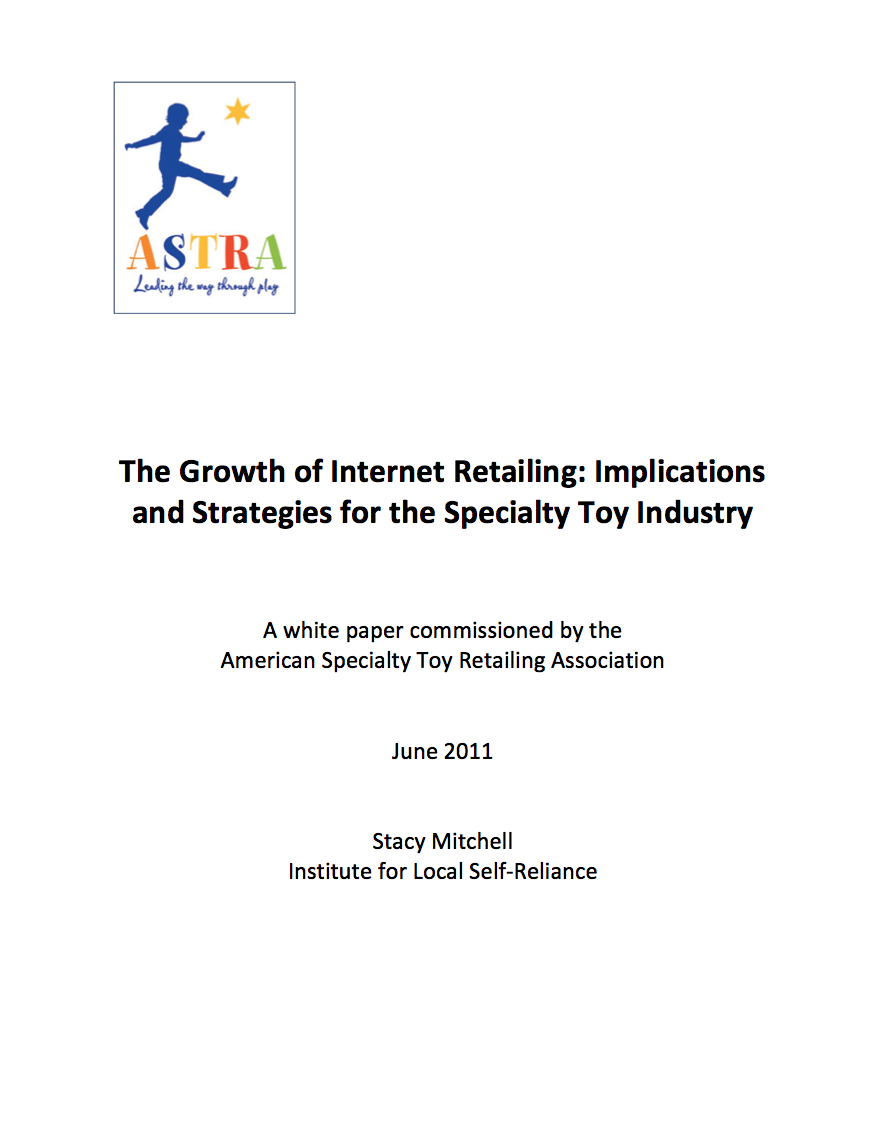Note: This article was originally published by Business Week. Photo courtesy of Ed Yourdon.
Sifting though the postmortem news of Borders Group’s demise, I came across a local newspaper story about a California town that had spent $1.6 million to lure a Borders bookstore to a local shopping center. According to the paper, government officials in Pico Rivera in 2003 agreed to pay part of a new Borders store’s operating expenses by providing a $10,833 monthly subsidy for the next 15 years.
That might seem like an astonishing amount of public money to give a retail shop, but what’s truly remarkable about the deal is just how unexceptional it actually is. Handing out multimillion-dollar subsidies to large chains has become commonplace in much of the country. These deals are premised on the idea that new shopping centers and big-box stores expand employment and create economic growth. The trouble is, these giveaways have done little more than help large retailers at the expense of small businesses.
No one knows exactly how much public money has flowed to chains. These subsidies take different forms—property tax exemptions, sales tax rebates, job tax credits—and most states do not keep a central record of every municipal and county development incentive. But Good Jobs First, a nonprofit research group that tracks these deals, estimates that large retailers have received at least several billion dollars over the past 15 years. Its executive director, Greg LeRoy, says the giveaways have continued through the recession, despite budget shortfalls and a glut of vacant retail space.
Big Beneficiaries
Wal-Mart Stores has been a frequent recipient. From 2008 through 2009, the company pocketed $7.9 million in tax exemptions from local development agencies in New York, according to data from the state comptroller. Wal-Mart also received $1.8 million in tax credits and rebates in 2009 to build five supercenters in Louisiana, records kept by the state’s Board of Commerce & Industry show. Last year, the St. Louis Post-Dispatch reported that the city of Bridgeton, Mo., approved a $7.2 million deal to finance construction of a single Wal-Mart supercenter.
Other big retailers have been at the public trough, too. Target picked up $1.4 million in local tax breaks to build a store in the small town of Kenner, just outside New Orleans, according to the Times-Picayune. Amazon secured a five-year sales tax exemption from the South Carolina legislature in exchange for opening a distribution center in the state.
Subsidy recipients and government officials often justify these deals on the basis of job creation and economic growth. While Wal-Mart and Amazon did not respond to requests for comment, Molly Snyder, a Target spokeswoman, says the “Kenner Target store created more than 200 new jobs. ” She notes: “The business development agreement was a key factor in helping to get the project built.”
Scant Economic Growth
A recent study, however, indicates that subsidizing retail development produces neither job gains nor new tax revenue. Earlier this year a consortium of local governments in the St. Louis metro area found that cities and counties in the region had diverted more than $5.8 billion in public tax dollars to finance private development. More than 80 percent of these funds supported the construction of new chain stores and shopping centers.
Yet the region has seen virtually no economic growth. “The number of retail jobs has increased only slightly and, in real dollars, retail sales per capita have not increased in years, ” the authors of the study wrote, noting that many of the region’s municipalities are now broke. According to the study, more than 600 small retailers have closed in the St. Louis metro area. The resulting job losses have offset the job gains from the new development.
These findings should prompt other cities and regions to reconsider the wisdom of giving big retailers tax breaks and subsidies. Not only is evidence of a public benefit lacking, but local businesses shouldn’t see their tax dollars used to boost their biggest competitors.
A more prudent, and fairer, way for cities to support economic development would be to invest in infrastructure, education, and other community assets that are broadly beneficial to a wide variety of businesses and potential entrepreneurs.
Had Pico Rivera taken such an approach, it might still have a bookstore. In the years since the city began funding Borders, more than 400 new independent bookstores have opened nationwide, according to the American Booksellers Assn. Virtually all did so without the benefit of public funding, staking their success instead on smart business skills and the kind of community support that must be earned one customer at a time.




